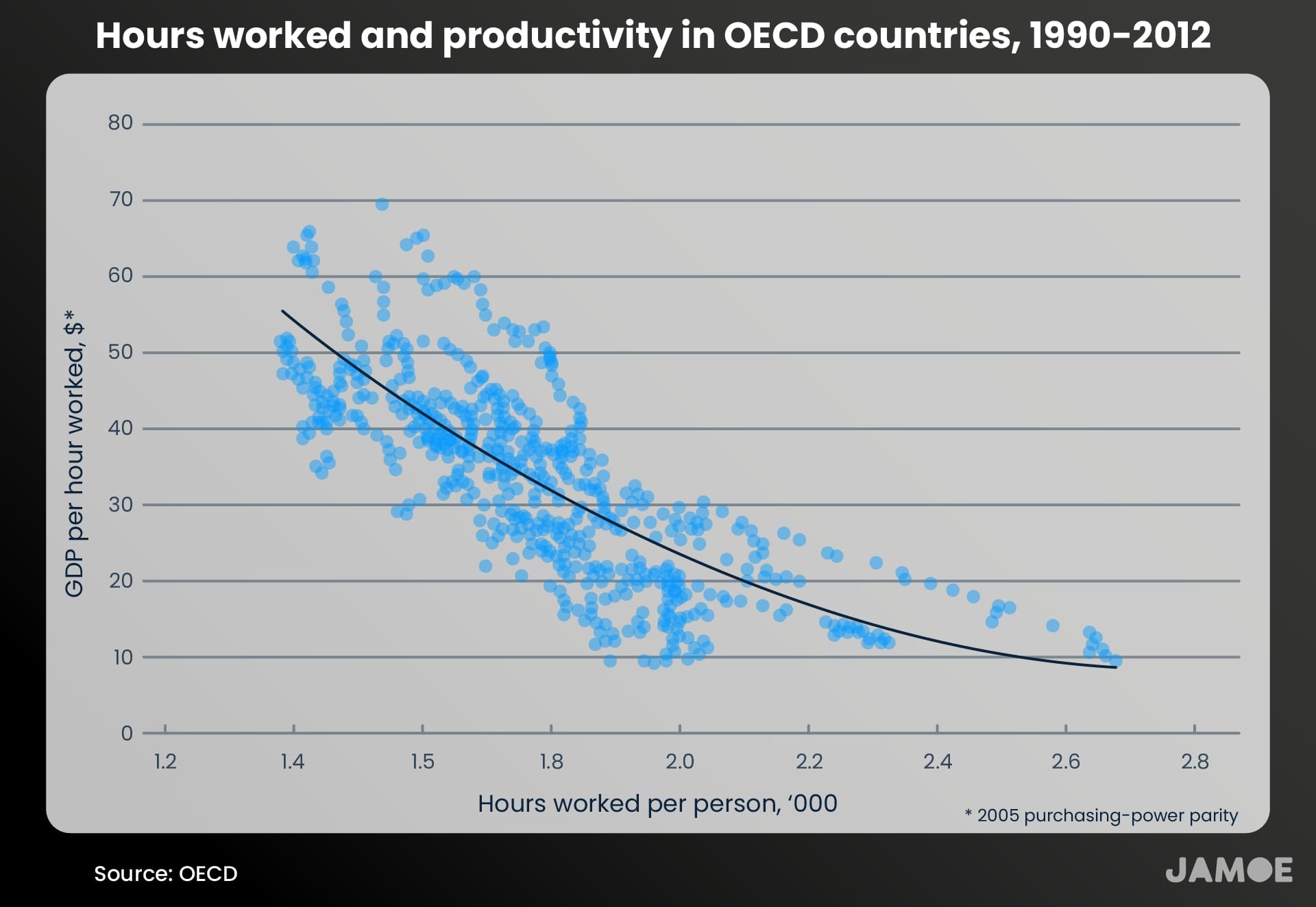Untucking Revenge Bedtime Procrastination
At a glance
- Based on the reader question: How can I stop procrastinating before bed? It's turning me into a zombie during the day, but breaking the habit is hard. – Laura, USA
- You're probably revenge bedtime procrastinating. This is when you protest against your overwhelming daytime schedule by sacrificing sleep in exchange for some me-time.
- By understanding what you're protesting against, you'll find breaking the habit much more manageable. For most of us, the cause is obvious. We simply have to look at our back-to-back schedules.
- However, there are times when we have a vengeful bedtime routine without living in a pressure cooker. When this happens, it's often because of a wound or wrong from long ago that is still bothering us without us realising it. Fortunately, once you notice it's there, it loses its power.
Introduction
You come home, tired and fried after a long day. Slogging through your evening chores, you make a decision. While sleeping is the sensible option, you don't. Instead, you decide to stay awake and cram in some bonus leisure time to protest against your unruly daytime schedule.
Sometimes that's knitting or reading a book, but more often, it's watching videos or catching up on newsfeeds until 3am. You know your detour will result in a rough morning, but that misses the point. This isn't about sleep. This is about control and exercising your autonomy.
That's revenge bedtime procrastination; like with medicine, the dose matters. A small protest now and then is fine, but turning it into a habit that compresses your sleeping hours to the bare minimum will spell trouble for your physical and mental health.
Since learning about the phenomena, we've caused a few awakenings when mentioning it to friends who, without realising it, have been practising a vengeful evening routine. For some, the cause was obvious. For others, the truth was more concealed – they found they were being vengeful about something in their past that, until saying it aloud, they had no idea was still nibbling away at them.
Spotting when you're being vengeful
Four behaviours characterise a revenge bedtime procrastinator. These might occur before going to bed or while in bed:
- Not according to plan – if you want to stay up late, then you aren't necessarily bedtime procrastinating. Maybe you want to finish Heartstopper (again), or perhaps you know that you have nothing scheduled in the morning. The tipping point is when you're going to sleep far later than intended.
- No external reason – this is when nothing is stopping you except yourself. If there aren't any noisy neighbours, angry parents, or chesty coughs keeping you awake, you're choosing to stay awake for reasons known or unknown.
- Aware of the harm – realising that there will be negative consequences for staying awake far longer than is reasonable, but doing it anyway is the third sign to look out for.
- Revenge on the day – when you resent the lack of control over your daytime life and decide to sacrifice sleep for some more personal time.
The cause is known
For most of us, the cause of our revenge bedtime procrastination is known. We're in a pressure cooker of our own creation or living in a culture that prescribes us tasks that we can't delay, delegate or delete, so we're forced to burn the candle at both ends.
Cookers of our own creation
Perhaps we're caring for young children and sneaking downstairs when the adorable – but demanding – little ones are asleep, as it feels like the only way to preserve our sanity. Else, we might be deferring gratitude by taking on an intense programme of back-to-back essays to get ahead and, after a few weeks, find ourselves habitually using our nights to browse through luxury properties as a distraction.
Both examples are symptoms of a problem. We've overloaded our plates with commitments that give us no time for ourselves unless it comes at the cost of our sleep. The solution is to push back by subtracting from our daytime duties, so we can add something more nourishing to our schedules, even if that's a dose of unscripted leisure time. But, if we're stubborn, perhaps we need a bit more convincing.
While the health complications are well-documented and the evidence strongly comes down in favour of more sleep, there's another important reason to avoid chronic sleep deprivation. A life with less sleep is a shorter life¹; however, it is also unfeeling. Sleep deprivation leaves us numb, inattentive and aching. While the world around us might be full of colour, our sleep-deprived eyes only see grey.
Continuing to live in monochromatic monotony means that we value the quantity of hours we spend awake rather than the quality. Our decision, however, is likely based on an old lie spread by the romantics: prioritising one's sleep is a sin for the lazy rather than a virtue of the wise.
Fortunately, the enemy of the romantics can offer the vengeful among us some valuable perspective. It's time for us to turn to the economists.
It pays to get a life
The relationship between hours worked, and productivity causes much debate, so the perspective offered by the OECD's research, a club of rich countries, is a comfort: the more productive, and thus better-paid, workers put in less time at the office.
The graph below summarises their findings by showing the relationship between productivity (GDP per hour worked) and annual working hours:

How is this possible? In two words, leverage and judgement. Leverage is when we use tools to get more done with the same effort, like using a bucket to carry water instead of our hands. Judgement is our ability to make better decisions. Sleep deprivation has been shown to cause similar impairments to alcohol intoxication, so a poorly rested workforce will make worse decisions than a well-rested one.²
After all, chronically getting seven hours of sleep is like going about your day tipsy. Over several years, these differences compound and contribute to the productivity gap.
So while letting go of our vengeful habits makes rational sense, we still might not want to make the change because of something we don't want to admit – we're afraid.
The fear of resetting expectations
Realising that vengeful bedtimes are a messy expression of self-care that isn't sustainable prompts an uncomfortable question: how else can we make room for the me-time we're craving?
The only remaining avenue available to us is to re-examine our commitments to our friends, family and colleagues. That's where many people freeze. Amending the commitments we've made, by its very nature, involves a degree of conflict. For many, the thought of disrupting the status quo with an uncomfortable conversation is a terrible fate. Instead, they decide to leave things and continue to sleepwalk through life as silent nighttime avengers.
However, if we do muster up the courage, we'll usually find our fears were misplaced. When well-intended and explained, a partner will appreciate that planning the entire summer holidays is a lot to juggle. They might then confess that they never stood in our way because they thought we enjoyed it. Yet, after seeing how it's pushed us past our edge, they reveal they secretly wanted to plan some of the itinerary themselves.
A manager is likely to be the same. There are always more problems to solve, so the mark of a great employee is evolving from a problem solver to a problem juggler. When we're given yet another project, a problem juggler will speak up and ask which project to prioritise, as doing them all isn't possible.
Both illustrate that we need to define what we're willing to tolerate and be frank with others about these boundaries. We'll need to negotiate a nimble path around the demands of others – and, usually, we'll find the journey to be far less treacherous than we first thought.
We won't be viewed as rude for cancelling the agenda-less ‘phone catch-up’ someone put in our calendar, but reasonable. Our children won't think we've stopped loving them for not rewatching Frozen. We won't be considered lazy for silencing our messages so that we can work with focus rather than in fragments.
These boundaries allow us to avoid the worst possible move: cutting back on our sleep. A lack of sleep makes every other part of our lives harder. So while establishing our boundaries will prompt a lot of fresh negotiations with the people in our lives, that is a much smaller pain than the fallout of living life as a sleep-deprived zombie.
Cookers from our culture
There is little we can offer for those of you trapped in a cultural pressure cooker by way of solutions. Setting boundaries in a country that believes the long-working hour fallacy is like shouting into a storm.
If that's you, then all we can offer is the comfort of knowing that you're not alone. More and more, people who are forced to make their work-life their whole life are sharing their experiences. To hear them, we must travel to China.
China's infamous 996-schedule
The 996 Schedule, which was deemed illegal by China's Supreme People's Court in 2021, remains prevalent and damaging. The name refers to the infamous culture of expecting employees to work from 9am to 9pm, 6 days a week, which equates to 72 hours per week.
Emma Rao spent three years living the schedule after moving to Shanghai. She remembers being deprived of all her personal life, so she sacrificed sleep for more personal time than simply getting home, eating, showering and going to bed. During these vengeful episodes, she would surf the internet, read the news and watch videos online.³
The feeling of freedom is bitter-sweet. While the cost is spending your days exhausted, for some, it's their only opportunity to connect with friends; as Gu Bing, a 33-year-old creative director in Shanghai, shared: ‘I really need that time. I want to be healthy, but [my employers] stole my time. I want to steal back my time. My friends and I, we converse at night and sometimes we write songs together. It's quiet and peaceful’.
For more voices, Daphne K. Lee's viral tweet about revenge bedtime procrastination has become a nexus of people sharing their schedules and acts of protest.
The cause is unknown
Some of us live with schedules that strike a healthy balance between work and play. We feel challenged and nourished, but we still find ourselves revenge bedtime procrastinating for some unknown reason.
If we were to look at the problem through psychoanalysis, we could see if our protests can be better understood because of events in our past rather than our present. Doing so usually reveals a long-forgotten emotional root that's at the heart of our confusing pattern of behaviour.
The forgotten emotional root
One of the starting assumptions of psychoanalysis is that our trouble as adults has roots in our childhood. In the case of revenge bedtime procrastination, an unusual but insightful question we might ask ourselves is: why might a child want to avoid going to sleep? Why might a child want to be tired during the day? And finally, why might the adult version wish to maintain this sabotaging habit?
You can be liberal with your understanding of ‘child’. We recommend surveying your memories from the time you were a toddler to when you grew into a young adult.
You might find that you remember when a parent would let you have the day off school because you had a terrible night's sleep. You might then draw a connection between staying up late and having a bonus day of freedom, play, and quality time with a parent.
Perhaps things weren't so pleasant. Maybe you would self-sabotage by staying awake late, ignoring the responsibilities you signed up for at your parent's insistence because, if you're constantly tired, you might be allowed to stop without being seen as a quitter.
This approach promises that once we become aware of the dynamics of our past and realise our motives have become redundant or ridiculous, we can free ourselves from them. We’ll be able to see how our bonus days off are hurting us in the long term and we don't need to defend ourselves using self-sabotage.
“After talking it through, the penny dropped”, remarked Josh, one of our Australian readers who's just turned 30. “I have always hated going to sleep before midnight despite being exhausted because my parents were super strict about sending us to bed. I think a part of me is still rebelling even though it makes no sense”.
Conclusion
Finding ourselves revenge bedtime procrastinating is a sign that we've reached the edge of what we're able to cram into our daytime schedules without adding more me-time. In the haze of the night, it feels like a neat solution. After all, we're not like most people and convince ourselves that we can push through the pain, drink plenty of coffee, and be tip-top.
However, the body keeps the score. A lack of sleep makes every other part of our life harder and less enjoyable. For those of us that know the cause of our vengeful actions, it would be wise to inspect our schedules and find a way to shrink our commitments in some other sphere of our lives – even if that means going through the temporary pain of having a few difficult conversations.
Those of us still afflicted by the need for revenge without knowing why should look not to their schedules but to their pasts. Often, as psychoanalysis says, our stranger quirks have roots in our upbringings and protesting against going to sleep is no exception.
However, once we've sieved through the contents of our minds, found the emotional root, and understood our reaction to it, then what? Often, that's enough. Like a lie, when we use a more sober and rational light to see how we've been deceived, the deception loses its hold on us. Newly liberated, we can reclaim our evenings, put down our phones and, after flipping the pillow to the cold side, start snoring.⁴
Footnotes
[1] The research, by academics in the UK and Italy, analysed data from 16 separate studies across Europe, the US and Asia over 25 years, covering more than 1.3m people and more than 100,000 deaths. It found that those who generally slept for less than six hours a night were 12% more likely to experience a premature death over a period of 25 years than those who consistently got six to eight hours' sleep.
[2] We’re glad you’re reading this footnote because we found this fascinating. Several studies compared fatigue-related impairments and alcohol intoxication on our cognitive and physiological functioning. The two conditions were 1) staying awake for extended periods and 2) reaching a certain blood alcohol concentration (BAC). For context, a BAC of 0.05% is over the legal limit in Scotland: you’d be judged as a drunk driver. That makes it all the more interesting that being awake for 17 hours is similar to a BAC of 0.05% while being awake for 24 hours is similar to a BAC of 0.10%. To make matters worse, the combination of the two (being tired and intoxicated) reduces performance even further. So when you hear that someone has only slept 7-hours, let your alarm bells ring. For a closer look, see studies one, two and three.
[3] For more anecdotes, the BBC wrote a great piece interviewing young Chinese workers and how they revenge bedtime procrastinate.
[4] Thanks to everyone on Twitter that helped with thinking through this metaphor.




